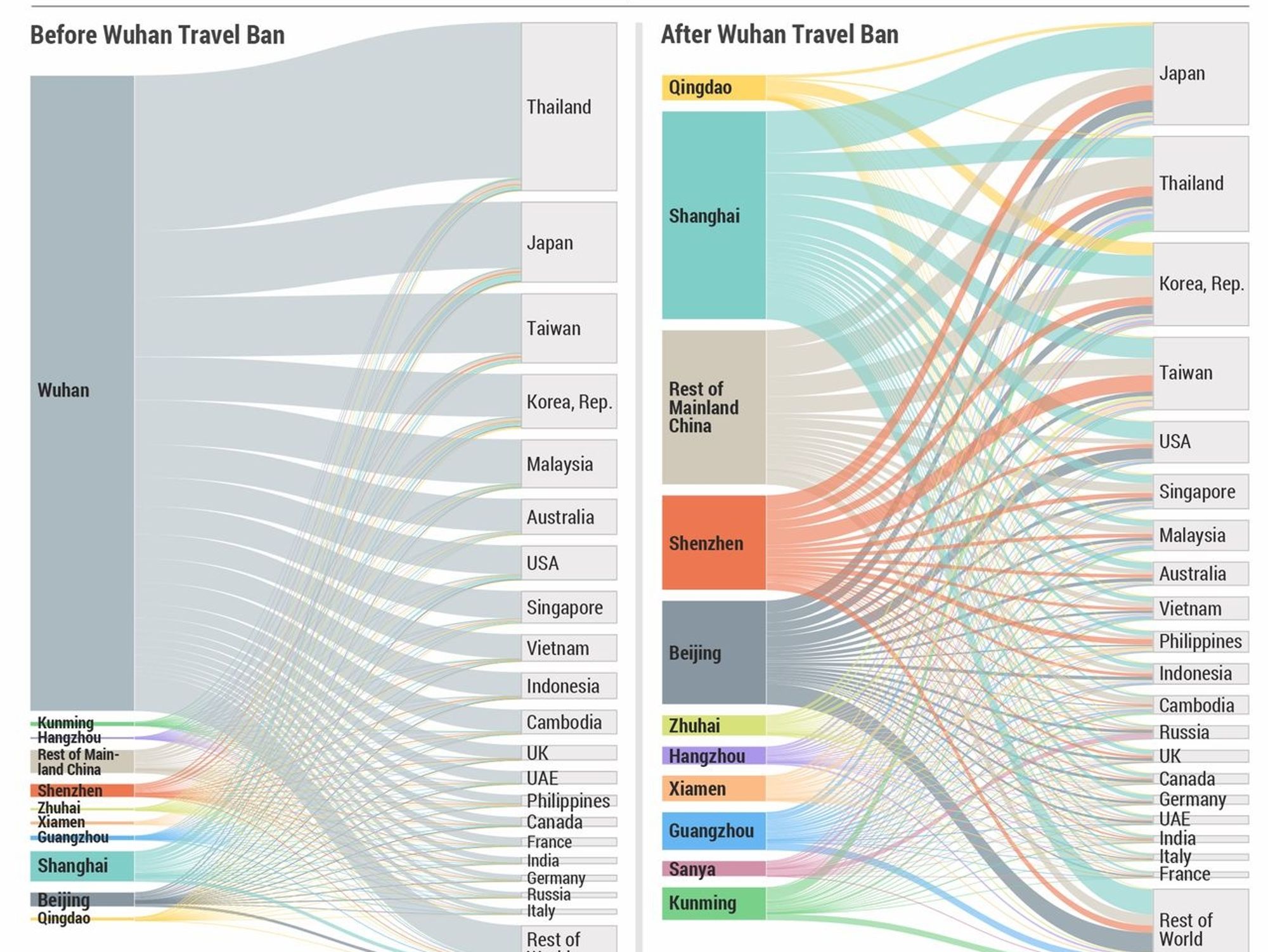Study Says Travel Restrictions Can Delay, but Can’t Defeat a Global Coronavirus Outbreak
GeekWire contributing editor Alan Boyle is an award-winning science writer and veteran space reporter. Formerly of NBCNews.com, he is the author of "The Case for Pluto: How a Little Planet Made a Big Difference." Follow him via CosmicLog.com, on Twitter @b0yle, and on Facebook and MeWe.

Comparisons of the real-world spread of the COV-19 coronavirus with computer models indicate that the travel restrictions imposed by authorities in China and other nations have delayed the progress of the outbreak by a matter of days or weeks.
The models suggest that the best way to mitigate the epidemic isn't through travel restrictions, but through public health interventions and behavioral changes — such as frequent hand-washing and social distancing.
The open-access findings were published today by the journal Science, by a research team including scientists from the U.S., Italy and China. Elizabeth Halloran, a biostatistician who works at Seattle's Fred Hutchinson Cancer Research Center and the University of Washington, is a member of the team.
Researchers took advantage of a computer model known as GLEAM, which traces the dynamics for the global transmission of diseases based on a given set of parameters. The team tweaked those parameters in an effort to determine how COVID-19 might have spread under different conditions.
The results suggest the travel ban that Chinese authorities introduced on Jan. 23 in the city of Wuhan, the epicenter of the epidemic, slowed the virus' spread across China by three to five days.
By early February, airlines had begun restricting international flights to and from China. But computer modeling of the real-world spread of the virus suggests that "a large number" of individuals who were exposed to COVID-19 traveled internationally without being detected. Those individuals seeded fresh outbreaks elsewhere, the researchers said.
"This finding is consistent with the emergence of COVID-19 outbreaks in countries across the world, including Italy, Republic of South Korea and Iran in the second half of February," the team reported.

The models suggest restrictions on flights to and from China slowed the virus' spread by two to three weeks.
Researchers cautioned that their findings were based on preliminary parameters relating to the incubation time for the virus, and prior knowledge about earlier coronavirus epidemics. Nevertheless, they said the computer models could help guide expectations for controlling the virus' spread.
"Moving forward we expect that travel restrictions to COVID-19 affected areas will have modest effects, and that transmission-reduction interventions will provide the greatest benefit to mitigate the epidemic," they said.
The study in Science is called "The Effect of Travel Restrictions on the Spread of the 2019 Novel Coronavirus (COVID-19) Outbreak." The University of Florida's Ira Longini and Northeastern's Alessandro Vespignani are corresponding authors. Co-authors include Halloran as well as Jessica Davis, Marco Ajelli, Corrado Gioannini, Maria Litvinova, Stefano Merler, Ana Pastore y Piontti, Kunpeng Mu, Luca Rossi, Kaiyuan Sun, Cecile Viboud, Xinyue Xiong and Hongji Yu.
This article was originally published on GeekWire. Love space and science? Sign up for GeekWire's Space & Science email newsletter for top headlines from GeekWire's aerospace and science editor.
GeekWire contributing editor Alan Boyle is an award-winning science writer and veteran space reporter. Formerly of NBCNews.com, he is the author of "The Case for Pluto: How a Little Planet Made a Big Difference." Follow him via CosmicLog.com, on Twitter @b0yle, and on Facebook and MeWe.




 Image Source: Skyryse
Image Source: Skyryse
 Image Source: Northwood Space
Image Source: Northwood Space